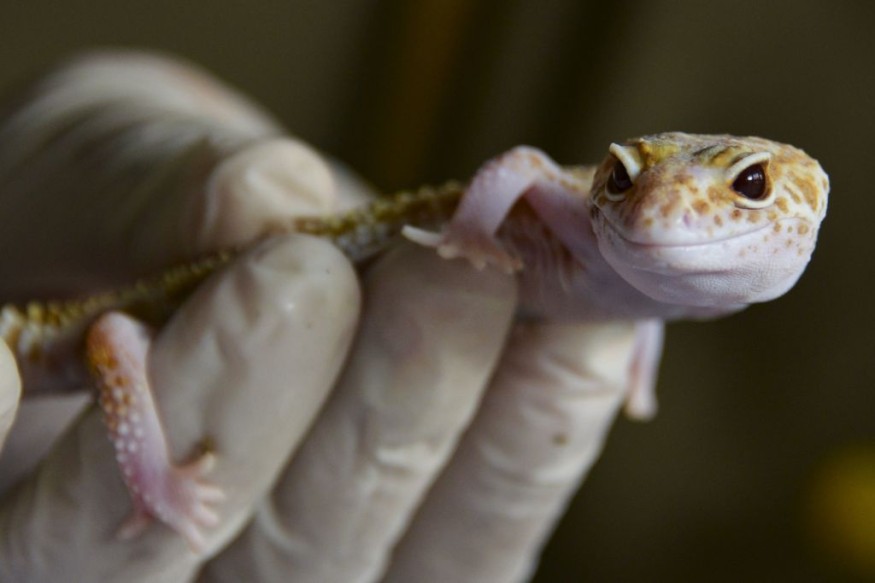Roaches, bugs, and even other tiny arthropods in their habitat are being swooped down by foreign banded geckos. Geckos' violent mannerism towards prey, notably the scorpions, are quite unique.
Geckos start shaking furiously from different directions at alarming prevalence, slamming their victim again and again on the floor repeatedly, so that it is paralyzed, as per Phys.org.
Geckos Immobilize Prey

Following the scuffle, the gecko consumes the considerably tiny scorpion. According to Rulon Clark, a researcher at San Diego State College, it is an incredibly brand of literally astounding action, and utterly unanticipated from something like a reptile like Geckos.
While Malachi Whitford, a graduate candidate in the combined SDSU and University of California, Davis Ph.D. degree in wildlife who researched the geckos' peculiar eating habit, believes that when a lizard body-slams a scorpion, the traumatic injury damage basically leaves the scorpion powerless to resort to violence and bodily injure the gecko for an extended period of time.
What citizens have seen is geckos moving their head and torso ahead and backward in this circular manner to pummel this creature around, especially into things, hitting the surface, using rotational pressure to immobilize the scorpion.
Experts like Clark suspect geckos are executing precisely the comparable approach, only concussive trauma. As per SDSU NewsCenter, from an adaptive viewpoint, the scientists claim the geckos' excessive reaction aids decrease the possibility about becoming hurt through their own target.
Perhaps geckos are just avoiding becoming hurt despite if the scorpion is pushing its spine at them, unless they are sufficient to smash the open tip of the stinger off by flogging. Geckos, which, similar to scorpions, emerge nocturnal, are typically rather gentle creatures.
Clark became aware of the geckos' activity while working as an academic field associate at Utah State University in the 1990s, investigating flat-tailed horned reptiles at the Barry M. Goldwater Bombing Range in the Sonoran Desert around Yuma, Arizona.
The investigators were managed to evaluate the geckos' frenzied motions in painstaking depth through high-speed recording devices that collect up to 1200 pictures every moment.
Battle Between Geckos' and Scorpion
The experts are therefore unsure if the creatures are immune to the scorpions' poison, but nevertheless they are frequently injured throughout these confrontations with apparent negative consequences.
Since whenever engaging with risky wildlife, one ought to employ risk-mitigation measures. A theory is that the geckos move their carcasses so frantically that the scorpions are unable to penetrate them with poison.
"We offered them a range of various invertebrates as well as beetles, and the difference was fairly obvious," recalled Whitford, who became an interdisciplinary academic instructor at Clovis Community University.
Investigators told reporter how they watch absolutely each small motion the gecko performs.
"I believe that might pose a harm to the gecko and perhaps the least terrifying creature you've yet encountered," Whitford added.
The findings were released prior this season in the Biological Journal of the Linnean Society. According to the investigators, scorpion-thrashing habits has been seen in yet another subspecies of reptile.
They also recorded engagement amongst geckos and their victims whilst they were there. However, experts today rarely encountered a gecko that was harmed by these scorpions.
© 2025 NatureWorldNews.com All rights reserved. Do not reproduce without permission.





